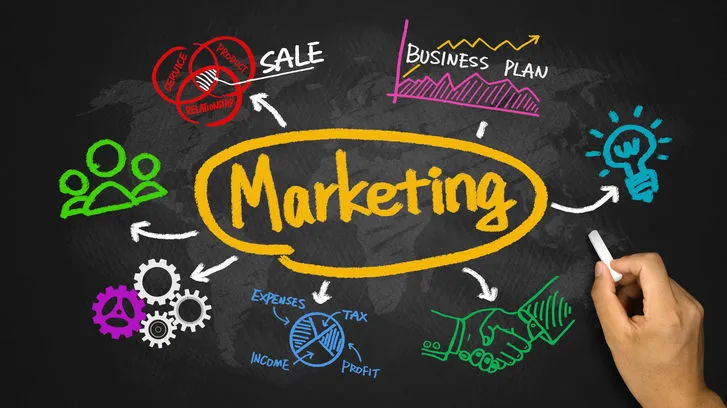Marketing is the process of promoting, selling, and distributing products or services to consumers. It involves understanding the needs and desires of target audiences and creating strategies to meet those needs in ways that benefit both the customer and the business. Marketing is not just about advertising or selling; it encompasses a broad range of activities aimed at attracting and retaining customers, increasing sales, and building brand awareness.
Key Components of Marketing:
- Market Research: Understanding the needs, preferences, behaviors, and demographics of the target audience is essential for creating effective marketing strategies. Market research helps identify customer pain points and the best ways to reach them.
- Product Development and Design: Marketing helps in developing products or services that satisfy the needs and wants of consumers. This includes determining product features, packaging, and the unique selling proposition (USP) that sets the product apart from competitors.
- Branding: Branding involves creating a distinct identity for a company or product, including logos, messaging, and the overall image or reputation. It aims to make a business recognizable and build trust with consumers.
- Advertising and Promotion: This is the practice of spreading information about a product or service to generate interest and sales. It includes traditional advertising (TV, radio, print) as well as digital advertising (social media, search engine ads, email marketing).
- Sales: Sales strategies include direct selling, online sales, retail distribution, and more. It is the process of persuading potential customers to purchase a product or service.
- Distribution: Once a product is created, marketing focuses on how to deliver it to customers, whether it’s through physical stores, e-commerce platforms, wholesalers, or other channels.
- Customer Relationship Management (CRM): This involves maintaining relationships with customers through customer service, loyalty programs, feedback, and ongoing communication. The goal is to encourage repeat business and referrals.
- Digital Marketing: With the rise of the internet, digital marketing has become crucial. This includes SEO (Search Engine Optimization), social media marketing, content marketing, email campaigns, and influencer marketing.
The 4 Ps of Marketing:
Marketing strategies often revolve around the 4 Ps:
- Product: What are you selling? It includes the design, features, quality, and benefits that the product provides.
- Price: How much are you charging? Pricing strategies can affect the demand for the product and the perception of its value.
- Place: Where are you selling your product? This refers to the distribution channels through which the product reaches the consumer.
- Promotion: How will you communicate with potential customers? Promotion involves advertising, public relations, events, and sales promotions to encourage customers to buy.
Types of Marketing:
- Traditional Marketing: Includes print ads, TV, radio, billboards, and events.
- Digital Marketing: Focuses on online platforms, including search engines, social media, email, and websites.
- Content Marketing: Creating and sharing valuable content to attract and engage customers.
- Influencer Marketing: Collaborating with influencers who can sway their followers’ buying decisions.
- Social Media Marketing: Using platforms like Facebook, Instagram, and Twitter to connect with customers.
- Affiliate Marketing: Earning commissions by promoting other people’s products or services.
- Email Marketing: Sending targeted promotional emails to a list of subscribers to encourage purchases.
Why Marketing Matters:
- Building Brand Awareness: Marketing helps make your product or company recognizable and builds a loyal customer base.
- Driving Sales: Without effective marketing, even the best product can go unnoticed. Marketing creates demand and drives sales.
- Creating Customer Relationships: Marketing helps businesses communicate with their customers, build trust, and maintain ongoing relationships.
- Competition: In a crowded market, marketing sets businesses apart. It helps differentiate your product or service from the competition.
- Understanding Trends: Marketing research helps businesses stay relevant by understanding changing consumer behaviors, preferences, and trends.
Conclusion:
Marketing is a vital component of any business strategy, driving both short-term sales and long-term growth. It’s about reaching the right people with the right message at the right time, and continuously adapting to changing customer needs and market conditions.
Would you like more information on specific marketing strategies or tips? Let me know!




